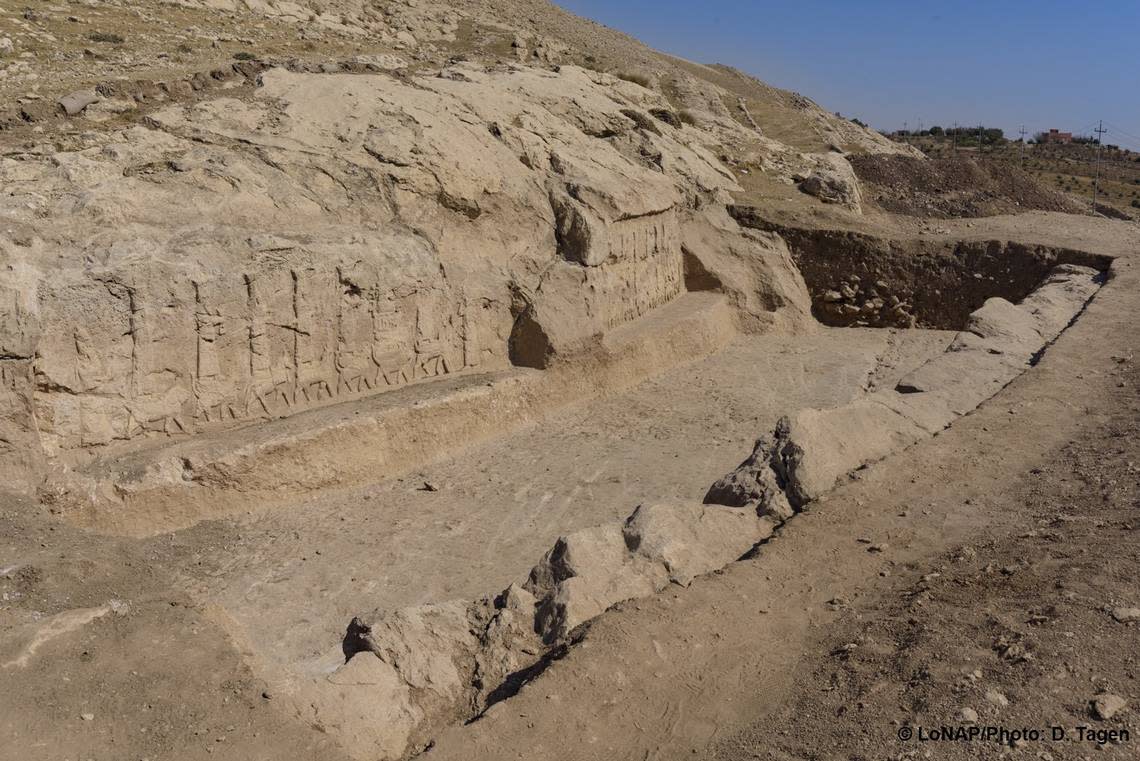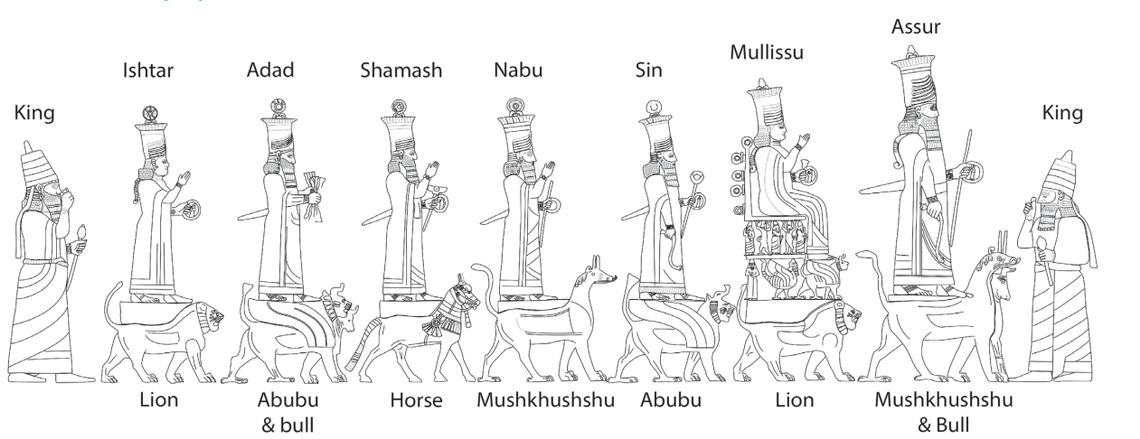Stone carvings — 2,700 years old — unveiled at archaeological site in Iraq, experts say
After four years of excavations, researchers unveiled a first-of-its kind archaeological park in Iraq.
An ancient irrigation canal, stretching over 6 miles and lined with stone carvings, winds its way through the Faida archaeological park, according to a news release from the Kurdish-Italian Faida Archaeological Project and University of Udine. The complex opened on Oct. 16 and became the first dedicated archaeological park of its kind in Iraq.
Archaeologists unveiled 13 stone reliefs throughout the park. Experts say they were carved around 700 B.C. during the time of Assyrian King Sennacherib or his father, King Sargon II.


The stone carvings – each about 16 feet long and just over 6 feet tall – show the same scene over and over again, the park said and AFP reported. The scene shows a parade of the seven main Assyrian deities book-ended by unidentified Assyrian kings, experts said.
From right to left, the Assyrian gods are: Ashur, riding a dragon or horned lion; his wife Mullissu on a decorated throne; Sin, the moon god, on a horned lion; Nabu, the god of wisdom, riding a dragon; the sun god Shamash; the weather got Adad; and Ishtar, the goddess of love and war.
The figures march the same direction that water would flow through the canal, but today the carvings preside over a dry and dusty landscape.

The 2,700-year-old stone carvings have survived everything from weathering and vandalism to illegal excavations and war, experts said. The Faida archaeological site aims to protect and preserve the “unique” site against future damage, researchers said.
Modern-day Iraq is home to some of the world’s earliest civilizations, including the Assyrians, Sumerians, and Babylonians.
Faida is about 285 miles northeast of Baghdad and located in Kurdistan, an autonomously governed region of Iraq.
Google Translate was used to translate the news release from the Kurdish-Italian Faida Archaeological Project and University of Udine.
Ancient city with ‘massive’ palace emerges from lake in drought-stricken Iraq
Underwater salt kitchens reveal how ancient Mayans worked from home 1,300 years ago
From mythology to history? Archaeologists find sanctuary of Poseidon on Greek hilltop
